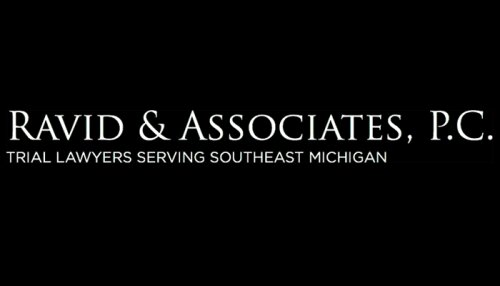Best Toxic Mold Lawyers in Southfield
Share your needs with us, get contacted by law firms.
Free. Takes 2 min.
List of the best lawyers in Southfield, United States
About Toxic Mold Law in Southfield, United States
Toxic mold is a significant concern for property owners and tenants in Southfield, United States due to its harmful health effects and potential to damage property. Toxic mold can be a result of water damage, poor ventilation, and inadequate building maintenance. The presence of toxic mold can lead to serious health issues such as respiratory problems, skin irritation, and in severe cases, neurological disorders. Legal disputes often arise regarding liability, responsibilities for mold remediation, and compensation for damages and health impacts.
Why You May Need a Lawyer
If you are dealing with a toxic mold situation in Southfield, a lawyer can provide invaluable assistance and representation. Common situations that may necessitate legal help include disputes with landlords or property managers over mold removal, filing claims against contractors for poor workmanship leading to mold growth, negotiating settlements with insurance companies, and pursuing compensation for health problems caused by mold exposure. Legal assistance is crucial in navigating the complexities of these situations and ensuring your rights and well-being are protected.
Local Laws Overview
The legal landscape in Southfield regarding toxic mold primarily revolves around property law, tenant rights, and health safety regulations. Landlords are generally required to maintain habitable living conditions, which includes addressing mold issues promptly. Failure to comply can lead to legal liability. Additionally, construction and maintenance standards must be adhered to in order to prevent water intrusion that can lead to mold growth. Southfield may also have specific regulations concerning tenant notifications and mold remediation practices that have to be followed.
Frequently Asked Questions
What is considered toxic mold?
Toxic mold refers to molds that produce mycotoxins, which can be harmful when inhaled or touched. Common examples include Stachybotrys chartarum, also known as "black mold."
How can I determine if my property has a toxic mold problem?
Signs of mold include visible growth, a musty odor, and water damage. Professional mold testing can confirm the presence and type of mold.
Can a tenant break a lease because of mold in Southfield?
Tenants may be able to break a lease if the mold issue renders the property uninhabitable and the landlord fails to address the problem despite being notified.
Who is responsible for mold removal in rental properties?
The responsibility typically lies with the landlord if the mold is due to structural problems or previous water damage. Tenants, however, must maintain general cleanliness to prevent mold growth.
Can I sue my landlord for health problems caused by mold?
Yes, if you can demonstrate that your health issues are directly linked to mold exposure due to landlord negligence, you may be able to file a lawsuit for damages.
Will homeowners insurance cover mold damage?
Standard homeowners insurance policies often exclude mold damage unless it's directly related to a covered peril like a burst pipe. It's important to review your policy specifics.
What steps should be taken to remediate toxic mold safely?
Professional remediation services should assess and remove mold. Steps include identifying and fixing moisture sources, cleaning affected areas, and preventing future growth through proper ventilation and repairs.
How long does it take to resolve a toxic mold legal case?
The duration can vary widely depending on the complexity of the case, the willingness of parties to settle, and court schedules, typically ranging from a few months to several years.
Do I need expert testimony for a mold exposure lawsuit?
Expert testimony is often crucial in proving the presence and harmful effects of mold exposure, particularly for establishing health claims.
What kind of compensation can I expect from a mold lawsuit?
Compensation can include recovery for property damage, health care expenses, lost wages, and pain and suffering, depending on the case specifics.
Additional Resources
For further assistance, you may contact the Southfield Building Department for guidance on building standards and maintenance. The Michigan Department of Health and Human Services can provide information on health risks and remediation practices. It's also beneficial to consult the Environmental Protection Agency (EPA) resources on mold.
Next Steps
If you require legal assistance with a toxic mold issue, consider contacting a local attorney specializing in environmental or property law. Prepare documentation and evidence of mold issues, including photographs, medical records, and communication with landlords or property managers. Initial consultations can help determine the strength of your case and potential legal strategies.
Lawzana helps you find the best lawyers and law firms in Southfield through a curated and pre-screened list of qualified legal professionals. Our platform offers rankings and detailed profiles of attorneys and law firms, allowing you to compare based on practice areas, including Toxic Mold, experience, and client feedback.
Each profile includes a description of the firm's areas of practice, client reviews, team members and partners, year of establishment, spoken languages, office locations, contact information, social media presence, and any published articles or resources. Most firms on our platform speak English and are experienced in both local and international legal matters.
Get a quote from top-rated law firms in Southfield, United States — quickly, securely, and without unnecessary hassle.
Disclaimer:
The information provided on this page is for general informational purposes only and does not constitute legal advice. While we strive to ensure the accuracy and relevance of the content, legal information may change over time, and interpretations of the law can vary. You should always consult with a qualified legal professional for advice specific to your situation.
We disclaim all liability for actions taken or not taken based on the content of this page. If you believe any information is incorrect or outdated, please contact us, and we will review and update it where appropriate.











